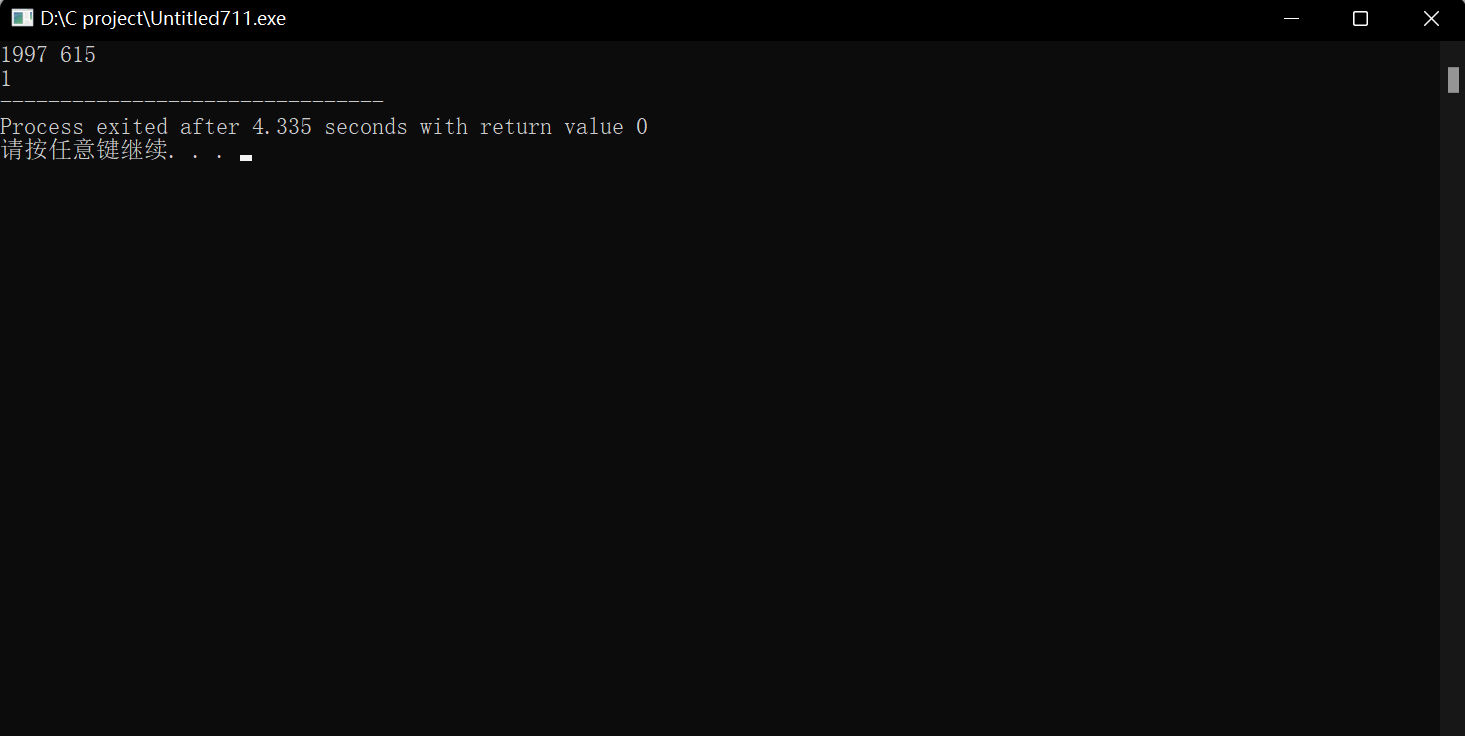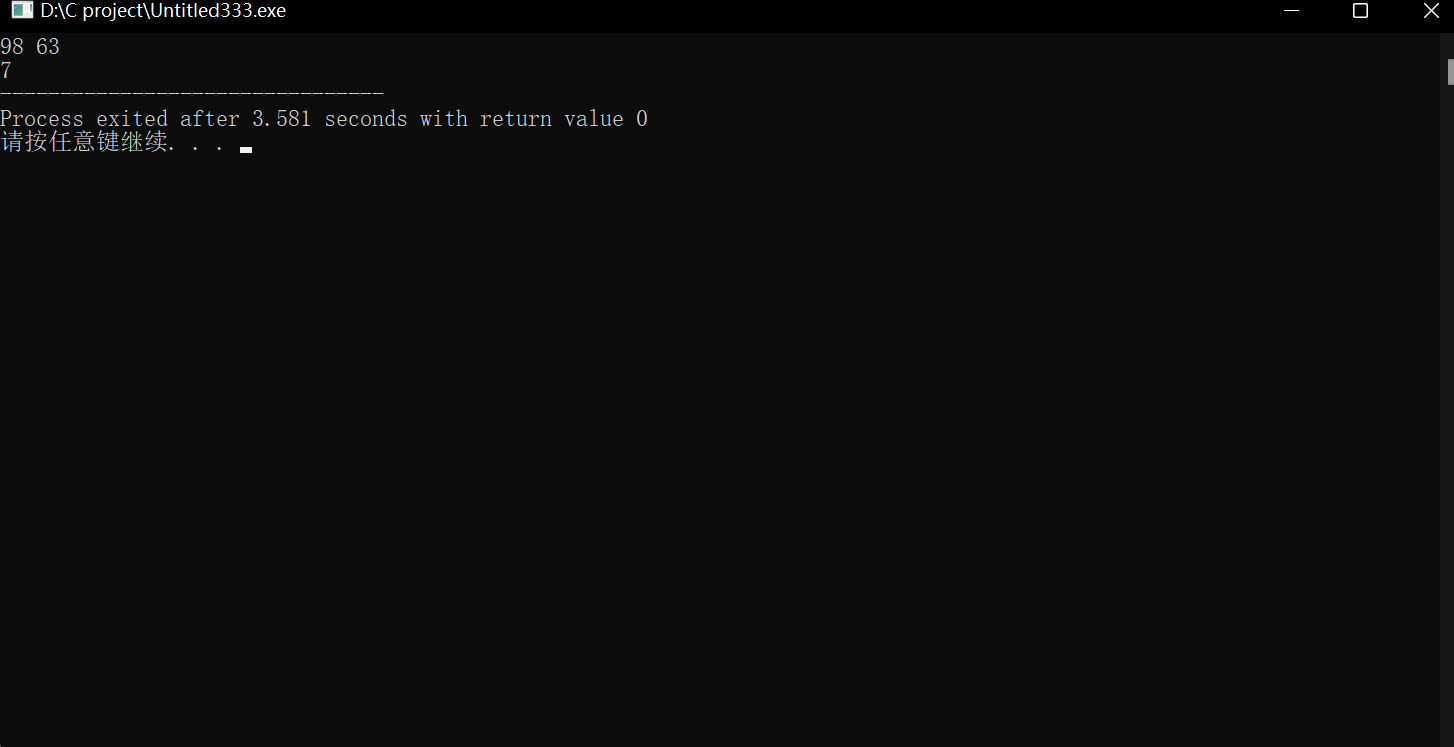方法1:欧几里得(辗转相除法):
#include<stdio.h>
#include<string.h>
int f(int a,int b){
int temp;
int t;
if(a<b){
t=a;
a=b;
b=t;}
else if(a=b) return a;
do{
temp=a%b;
if(temp==0) return b;
a=b;
b=temp;
}while(temp!=0);
return b;
}
int main(){
int x,y;
scanf("%d %d",&x,&y);
int result=f(x,y);
printf("%d",result);
}

欧几里得gcd()递归调用法
#include <stdio.h>
#include <cstring>
#include <algorithm>
#include <cstdio>
#include <bits/stdc++.h>
int gcd(int a,int b){
if(b==0)
return a;
else
return gcd(b,a%b);
}
using namespace std;
int main(){
int ans=0;
for(int i=1;i<=2020;i++){
for(int j=1;j<=2020;j++){
if(gcd(i,j)==1)
ans++;
}
}
cout<<ans<<endl;
方法2:更相减损法:
#include <stdio.h>
int main()
{
int a;
int b;
scanf("%d %d",&a,&b);
while(a!=b){
if(a>b) a=a-b;
else if(a<b) b=b-a;
}
printf("%d",a);
return 0;
}





 浙公网安备 33010602011771号
浙公网安备 33010602011771号